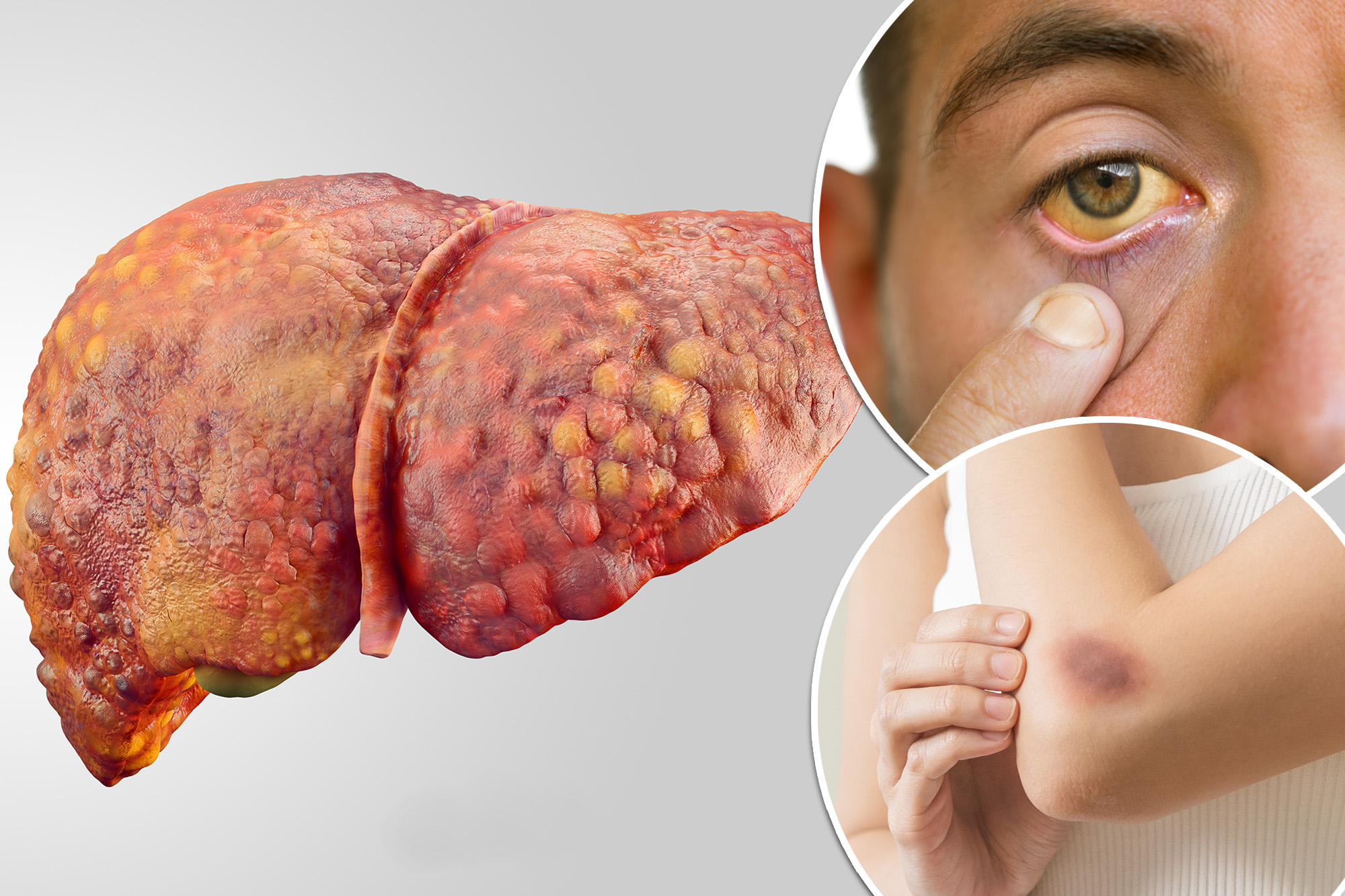
The liver does a lot of heavy lifting.
The largest internal organ, it regulates clotting and removes toxins, yet research suggests many of us are living with impaired liver function – and don’t even know it.
It is estimated that more than 100 million people in the US have some form of liver disease, a broad term used to describe several conditions, including non-alcoholic fatty liver disease (NAFLD), hepatitis and liver cancer.
Dubbed the “silent epidemic,” experts suspect that between 80 million and 100 million adults in the US have NAFLD.
As the name implies, NAFLD is characterized by the presence of fat in the liver.
The main cause is weight gain, along with metabolic risk factors such as type 2 diabetes, high blood pressure, high triglycerides and obstructive sleep apnea.
The condition is also known as MASLD (metabolic dysfunction-associated steatotic liver disease), reflecting the link between fatty liver and metabolic syndrome. Fatty liver disease is associated with an increased risk of liver cirrhosis and liver cancer.
While preventative measures such as diet, exercise and abstinence from alcohol can help prevent liver disease, problems arise because symptoms are subtle or absent.
Dr. Bubu Banini, a hepatologist and assistant professor at Yale School of Medicine tells HuffPost, “Signs and symptoms of liver disease don’t usually appear until there is significant liver damage,” Dr. Bubu Banini, a hepatologist and assistant professor at Yale School of Medicine, recently told HuffPost.
Experts like Banini urge people to seek medical attention if they experience the following problems.
Easy bruising and bleeding
The liver produces proteins that the body needs to form blood clots.
When the liver is damaged or otherwise malfunctions, people are more prone to bleeding and bruising, a common side effect, according to the Cleveland Clinic.
Turmoil and brain dysfunction
A medical professional should always address a change in mental status or cognitive function. However, experts say an unexpected cause of brain fog and cognitive impairment is late-stage liver failure.
“An otherwise healthy person can develop acute liver failure that can manifest as changes in mental status or personality such as disorientation, confusion, or drowsiness,” Banini explained to Huff Post.
Specifically, hepatic encephalopathy is a brain dysfunction caused by liver problems, according to the Cleveland Clinic, whose experts say it can arise by affecting:
- Humor and personality
- Behavior and impulse control
- Memory, concentration and thinking
- Consciousness, lucidity and sleep patterns
- Coordination and motor functions
- Autonomy and ability to take care of oneself
Jaundice
Banini notes that liver disease can manifest as jaundice, a yellowing of the skin or eyes. When the body breaks down red blood cells, it creates the pigment bilirubin, according to the National Institutes of Health.
Typically, the liver processes and removes bilirubin, but an excess of it can cause jaundice and lead to liver problems.
Dark urine
If you are adequately hydrated but notice that your urine has a persistent dark tint, this could be a sign of a serious liver condition.
Just as an excess of the pigment bilirubin can cause yellowing of the skin and eyes, it can turn urine darker shades of orange or amber.
Driven by cirrhosis swelling
Cirrhosis, or scarring of the liver, can cause swelling in the joints, legs and abdomen.
According to the Mayo Clinic, cirrhosis slows blood flow and increases pressure in the portal vein inside the liver. This pressure can cause fluid to accumulate; when fluid collects in the leg, it is called edema; in the abdomen, it is known as ascites.
Swelling can also indicate that the liver is not making enough blood proteins.
#liver #damage #experience #warning #signs #doctor
Image Source : nypost.com